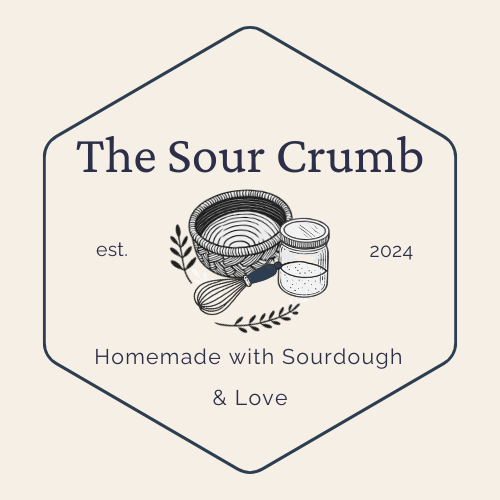What to Know Before Baking Your First Loaf
So, you’re ready to bake your first sourdough loaf. Maybe you’ve been watching loaves rise on Instagram, or maybe a friend handed you a starter with the words “just feed it and bake!” Either way, welcome—you’re stepping into something timeless, creative, and honestly, pretty addictive.
If you’ve already done a bit of reading, you’ve probably realized that sourdough isn’t just a recipe—it’s a process. And while that can sound overwhelming at first, it’s also what makes it so special. You don’t need fancy equipment or a perfect setup to get started. You just need a little time, a little patience, and a willingness to learn.
Before you dive in, here are five things I wish every new baker knew—real-world reminders that can turn your first bake from stressful to satisfying (even if it’s a little wonky).
1. Sourdough Takes Time—And That’s a Good Thing
Unlike quick-rise yeasted breads, sourdough works on its own schedule. There will be stretches of waiting—for fermenting, folding, proofing—and that’s where the magic happens. Don’t rush it. Start on a day when you’re home and relaxed.
2. Your Kitchen Conditions Matter
Temperature affects how quickly your dough ferments. A warm kitchen speeds things up; a cooler space slows it down. That’s why sourdough isn’t just a recipe—it’s a relationship with your environment. Don’t worry about being exact, just be observant.
3. Flour and Water Are Not All the Same
Different flours absorb water differently. One person's perfect dough might feel sticky or dry in your hands. That’s okay! Use recipes as a guide, not gospel. Trust your eyes and hands more than your measurements.
4. A Strong Starter Is Key
If your starter is sluggish, your loaf will be too. Make sure it’s active, bubbly, and passes the float test before baking. (Need one? Our dried starter, Clyde, comes with a free mini-course to help you get it going.)
5. Your First Loaf Won’t Be Perfect (But It Will Still Be Good)
Sourdough is a skill learned through doing. You’ll learn what your dough likes, how to shape it better, and what fermentation feels like—not just what it looks like. Each loaf teaches you something. Don’t wait for perfection—bake anyway.
Whether you’re starting with Clyde, a friend's starter, or one you've grown from scratch, your first loaf is the beginning of something rewarding. If you’re not sure where to start, check out our beginner resources—or reach out. I’d love to help.
Until next time—may your loaves rise high and your crumbs be sweet. See you back here soon.
